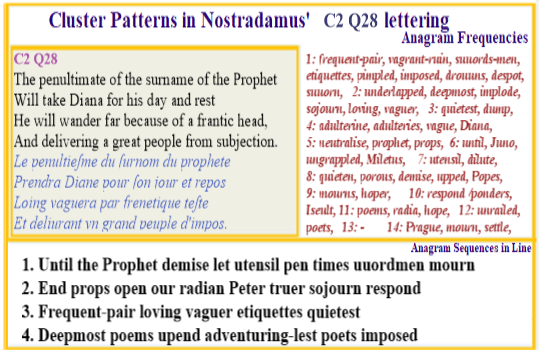 Analyses of all verses
Analyses of all verses
|
 Web Site
Web Site |
 All
Sefirots All
Sefirots |
Nostradamus C2 Q28: The relevance of Turkey in the American led war in Iran.
Copyright: Allan Webber, December 2015
 This verse's text lays out the frame for the allusion involving both the
disciple
Saul and
Alexander the Great as models for the
American invasion of Iran during this century.
This verse's text lays out the frame for the allusion involving both the
disciple
Saul and
Alexander the Great as models for the
American invasion of Iran during this century.
Both Saul and Alexander had links to the Temple of Diana and to the town of Miletus in their wide travels and these are important elements in Nostradamus' verse.
Now Diana is a name in the text while Miletus (ultieſm) occurs in the form of an anagram. This once famous city-port was built on the shores of the river Maendaer, Turkey near the Adriatic Sea but over time its relevance stopped as its port was covered in silt. This event can be found in adjacent anagrams of the same line holding the name Miletus where it says until / it seem mud drowns ( nulti / ti - eſme - du ſurno -m du) Miletus (ultieſm).
The last two lines involve a modern tale together with an expansion of the role of poetry in developing the full account present in this verse. However the use of this information to give meaning to the first line of text remains in the future as it involves the name of the guiding personality in the war on Iran. (See my paper titled American Disaster in Iran for more verses on this topic).